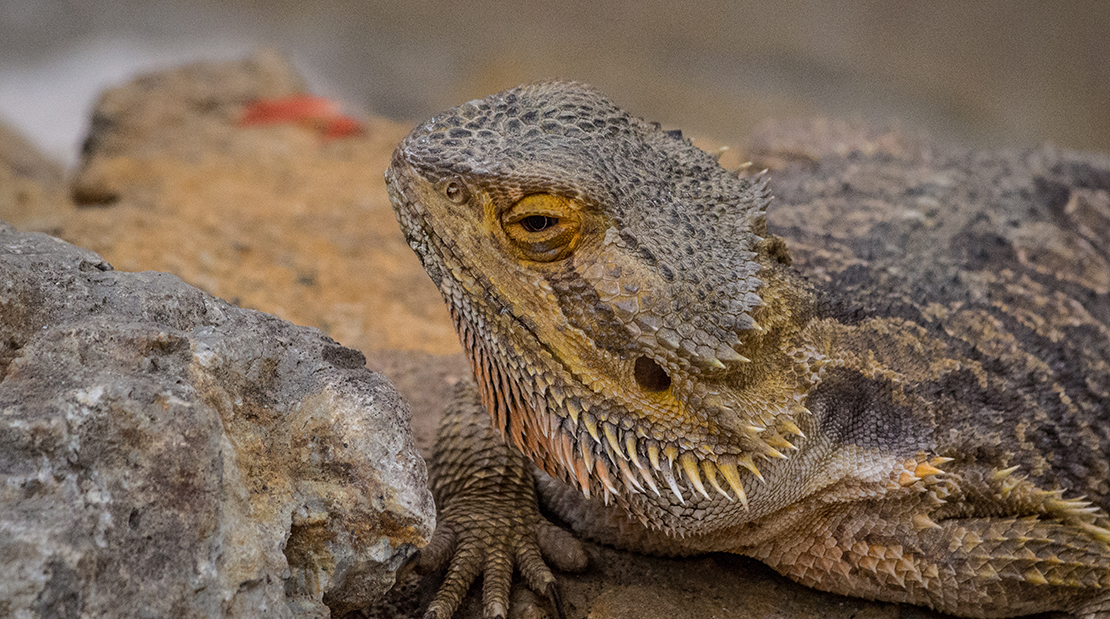
Common Medical Conditions of Bearded Lizards
In our last blog on Bearded Dragon Lizards, we discussed some proper ways to care for this easy going lizard. The Bearded Dragon is a great option for reptile enthusiasts, and can live between 8-10 years. But like all animals, Bearded Dragons are prone to certain medical conditions. Most of the conditions are preventable through a healthy diet, and good husbandry. Other conditions are specific to the Bearded Dragon breed, with little preventative care available. Here are some of the most common medical conditions of Bearded Dragons, and ways to keep the conditions at bay.
Parasites
Bearded Dragons can experience parasite infections, which are often a result of the insects they eat. Insects with parasites pass on the infestation when they are consumed by lizards. Crickets are typically fed to juvenile Bearded Dragons because of their high protein and fat content, which supports growth. Owners can also use other sources of protein in their lizard’s diet, like super worms and Dubai cockroaches. Crickets are not recommended for adult Bearded Dragons because of the high fat content.
Obesity
Many lizards are overfed, and have diets that are too fat or high in protein. Crickets are often the culprit of high fat consumption. Remember, it’s recommended for crickets to only be fed to juvenile Bearded Dragons. For adults, owners should follow a 70/20/5 rule when feeding this type of pet. Dark green veggies should comprise 70 percent of an adult Bearded Dragons diet. Protein should make up 20 percent of, while fruit should be included in 5 percent of the diet.
Tail Rot
Lizards experience tail rot when there’s not enough blood circulating to the distant part of the body or infection. As a result, the tail becomes necrotic and may need to be surgical repaired. Usually, this condition is caused by bad husbandry. Be sure to keep your Bearded Dragon in a dual temperature habitat that contains the appropriate amount of humidity.
Head base aneurysm
Beardies tend to be prone to head based aneurysm, with no known causes of why the aneurysm occur. Unfortunately, the condition is fatal. Veterinarians are still conducting research on the cause of head base aneurysm in Bearded Dragons.
Impaction
Impaction is when foreign bodies become stuck in the intestines, and caused blockage in the gastro system. The blockage can ultimately lead to fatal stomach obstructions. Impaction frequently occurs in Bearded Dragons who live in habitats with sand bedding. As the lizard eats its prey, it also consumes the sand from its bedding, which becomes stuck during digestion. To avoid sand impaction, use tile or reptile carpet for bedding instead of sand.
Yellow Skin Fungus
Yellow Skin Fungus is caused by an excess of moisture in the lizard’s habitat and on the skin. The fungus, if not treated, will eventually cause the skin to fall off. Misting the Bearded Dragon can cause Yellow Skin Fungus and should be avoided. Instead, use the soaking or water bowl method described in the previous blog.
Skin Burns
Skin burns come from an overexposure to heat, mostly caused by the lamps in a lizard’s tank. Unlike other lizards, Bearded Dragons don’t require the same amount of heat or light because they’re native Australia. Their tanks should still have dual temperatures, but should have heat lamps turned on for no more than 12 hours a day.
Pathological Fractures
Bearded Dragons succumb to pathological fractures when they lack sufficient calcium. As a result of the deficiency, the bones become brittle and are easily broken. Feed your Bearded Dragon lots of green veggies like collard and mustard greens for Vitamin A, and provide a sufficient amount of calcium to prevent Metabolic bone disease.

